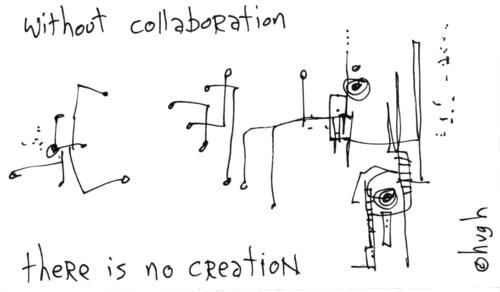Archive for 2008
Blog
Subscribe
Join over 5,000 people who receive the Anecdotally newsletter—and receive our free ebook Character Trumps Credentials.
Categories
- Anecdotes
- Business storytelling
- Collaboration
- Communication
- Corporate Storytelling
- Culture
- Decision-making
- Employee Engagement
- Events
- Fun
- Insight
- Leadership Posts
- News
- Podcast
- Selling
- Strategy
Archives
- April 2024
- March 2024
- December 2023
- November 2023
- October 2023
- September 2023
- August 2023
- July 2023
- June 2023
- May 2023
Years
Melbourne taxis and Sydney taxis
Last week Melbourne was witness to our taxi drivers protesting in the city streets against their poor working conditions. The protest was sparked by the …
Read MoreGlobal Storytelling – Pangea Day
May 10 is Pangea Day. A great opportunity to get inspired! Storytellers from all over the world will tell their stories about humanity to humanity. …
Read MoreConversations take time
A few weeks ago, about the time of the 2020 Summit, I met with Dave Pollard at the Athenaeum Library on Collins Street. Dave was …
Read MoreStorytelling event in Washington
My friend Madelyn Blair is busily preparing for two great storytelling events in Washington that start on the 9 May. I believe there are 30 …
Read MoreCooperation and the tragedy of the commons
One of our regular commenters, ken, has directed me to an interesting article in the Washington Post equating Barack Obama and Hilary Clinton’s race for …
Read MoreManaging knowledge in not-for-profit organisations
actKM is again participating in the annual Information Awareness Month. This year, actKM is hosting a world cafe-style event on the topic of: ‘How can …
Read MoreNet Neutrality
Some worrying developments which might limit the use of the Internet for the little guy. via Dave Snowden
Read MoreWithout Collaboration
Hugh Macloed is a master with social objects. He draws at the back of business cards! Here’s two of his recent creations, so cleverly done …
Read MoreThe difference between cooperation and coordination
Duesberg questions, on a submicroscopic scale, two tenets of biology. One is the germ theory of AIDS. He contends that HIV is not the cause of AIDS. The other is the gene mutation hypothesis of cancer. Duesberg claims that mutations in genes are not the cause of cancer.
. . .
When Duesberg’s work on HIV/AIDS and cancer is finally recognized and accepted, it will cause a revolution in science. Over the last 50 years government-sponsored and industry-sponsored research programs have come to dominate scientific research. A totalitarian system now exists where only scientists that adhere to the prevailing orthodoxy can receive funds to conduct research. Not only will the government not fund studies on alternative hypotheses for AIDS and cancer, but this stricture applies to other areas of inquiry. All research on climate change must conform to the dogma of human-caused global warming, and studies on vaccines dare not criticize their safety or efficacy. No government grants will be awarded to anyone who wants to study radiation hormesis – and question the linear no-threshold hypothesis. Studies published that support the reigning dogma are riddled with conflicts of interest, manipulated statistics, and bias. Once the HIV-AIDS hypothesis is acknowledged to be false, a domino effect will impact other branches of science that government now controls. Academic leaders in the inner circle of the medical-industrial-government complex will be called to account. Industry will likely face lawsuits. And government agencies, particularly the NIH, CDC (Centers for Disease Control and Prevention), and FDA (Food and Drug Administration) will have a lot to answer for. Duesberg’s work will do to biology and science in this century what Copernicus did to astronomy and science five centuries ago.
Workplace diversity
Every month, the Australian Institute of Management publishes its magazine ‘Management Today‘. The back page (p56) of the May 2008 edition has some comments about …
Read More


